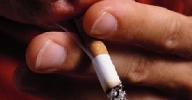Lots of people in the United States are infected with HSV-2. Except for rare perinatal acquisition, HSV-2 infections are acquired by contact with infected secretions during sexual encounters. As HSV can be shed from both mucosal and skin surfaces, concern has been raised regarding the ability of condoms to reduce sexual transmission of the virus. HSV-2 establishes a chronic infection in humans for which there is no cure. Most people who acquire HSV-2 do so at an early age, often by the time they reach 30, and must live with a wide variety of symptoms throughout their lifetime.
Primary infection typically presents with localized pain, pruritis, ulcerations, fevers and malaise. More severe complications such as neurological involvement, including meningitis, are not uncommon. Recurrences of HSV-2 are frequent, with over 90% of primary infections leading to recurrent episodes in the first year of infection, with a median of four annually. Between clinical recurrences, most people shed the virus asymptomatically; they are infectious at those times. Additionally, ulcerative sexually transmitted infections (STIs) have been associated with higher rates of HIV acquisition, and HSV-2 infection may hasten the progression of HIV disease.
The persistence of HSV-2 and the absence of symptoms during viral shedding afford many opportunities to transmit the infection, both through sexual contact and during delivery of newborns. This has led to HSV-2 being one of the most prevalent STIs worldwide. Given the morbidity associated with HSV-2 infection and the absence of curative therapy, strategies aimed at prevention of disease acquisition warrant increasing attention from healthcare practitioners and public health leaders. The administration of antiviral therapy to persons infected with HSV-2 results in decreased viral shedding, but has not been shown to decrease disease transmission to partners.
Increased awareness of STIs through education and testing, avoidance of highrisk behaviours and practising safer sex have been effective in reducing the incidence of gonorrhoea, HIV and syphilis. The US Centers for Disease Control and Prevention established a prevention agenda for genital herpes, which included all of these activities. The consistent and correct use of latex condoms can help protect against infection. But, condoms do not provide complete protection. Consistent and correct use of latex condoms appears to protect women from HSV-2 infection, and should be emphasized in pregnant women at risk of HSV-2 to prevent neonatal herpes.
Early clinical trials have been disappointing, though a recombinant glycoprotein vaccine may offer partial protection against HSV-2 acquisition in seronegative women. Additionally, the emergence of drug-resistant strains of HSV is a growing problem and represents a serious concern both in terms of clinical management and of viral ecology. Resistance to all major herpes treatments has been increasingly observed, especially amongst those immuno-compromised. Furthermore, DNA polymerase mutants induced by prolonged or repeated therapy with vidarabine or foscarnet are often resistant to combination therapy with existing compounds for a potentially stronger genital herpes treatment.
These observations underscore the critical importance of the unique treatment for herpes. Plant medicineisnew, highly effective alternative antiviral agent for herpes . Viruses exhibit rapid rates of mutation which can make immunity difficult to sustain, especially considering chemical drugs for herpes contain only a single antiviral agent. Once a cell is infected it is difficult to selectively inhibit the virus without harming the host cell. As a result, much interest has focused on plants as strong allies in restoring immune strength and inhibiting the spread of viral diseases.
Plant medicines are bulk drugs and preparations that take plant primary metabolites such as protein and amylose and secondary metabolites such as alkaloid, phenols and terpene as active ingredient. Traditional Chinese medicines and Chinese patent drugs made from plants in the market are all plant medicines. Plant medicines play a dominant role in natural drugs. For recent years, plant medicines are considered to be very important because of the unique advantage in the treatment. To learn more, please go to .



